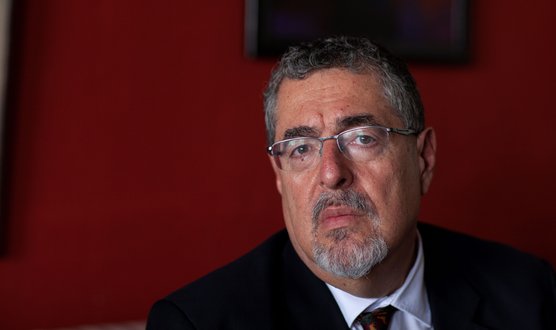
Spain’s new abortion law has difficult realities to address
How regional inequality, poor planning and conscientious objections have affected abortion rights in Castilla y León

When Blanca* decided she wanted an abortion, she was told she'd have to travel almost three hours to find Spain’s nearest health centre with free provision. Out of desperation she ended up paying 400 euros at a private clinic, where she was offered only a local anaesthetic.
Her experience is just one example of the grim reality for women and pregnant people that a progressive new law is hoping to address.
Since 2010, abortion has been legal under any circumstances during the first 14 weeks of pregnancy in Spain, but poor planning, a lack of resources and information and conscientious objections from doctors are all factors that affect the right to choose.
What’s more, healthcare is devolved to the regions, and territorial inequality is a major problem. More than 84% of abortions in 2021 took place in private health centres, according to the Ministry of Health. In Castilla y León, the largest of Spain’s 17 autonomous communities, it was almost 98% and five of its provinces (Ávila, Palencia, Segovia, Soria, Zamora) recorded zero abortions, suggesting women had to be referred to other areas.
Not all procedures in private centres have to be paid for, due to contracts with the public health system, but in a country where terminations are supposedly free, almost half of women in Castilla y León did have to pay for the procedure in 2020.
The reforms aim to ensure abortions (known in Spain as “voluntary interruptions of pregnancy”, or IVE) happen more and more in public hospitals while “guaranteeing accessibility and quality of the intervention as well as users’ safety”. But it won’t be straightforward.
Blanca is a former breastfeeding consultant and now the owner of a café in a small town in León province, Castilla y León. In early February, just before the new law came into effect, she was five weeks pregnant and had decided to terminate her pregnancy.
A midwife at the nearest public health centre (17 kilometres away) told the 33-year-old mother of two she would have to wait until the eighth week, when there would be a heartbeat, to see a gynaecologist.
The midwife also informed Blanca that neither of the two closest public hospitals (approximately 35 and 130 kilometres away, respectively) performed abortions and she’d have to travel almost three hours to Valladolid to find a health centre providing the service free of charge (Valladolid is the only private clinic in the region that has a contract with the local administration to perform abortions on patients from the public system). What’s more, she’d have to wait another week or so for an appointment.
“By this time, I would already have been 11 weeks pregnant! I find it extremely unfair and very cruel,” Blanca tells openDemocracy. “I don't understand why I have to go so far, when there is a public hospital 35 kilometres away, in Ponferrada. And this happens throughout Castilla y León.”
In fact, in the whole of Castilla y León – a region of 94,000 square kilometres and almost 2.4 million people – there are only two public hospitals (in Miranda de Ebro and Burgos) and three private clinics (in León, Salamanca and Valladolid) that carry out abortions.
Miranda de Ebro Hospital performs both medical and surgical abortions, while Burgos University Hospital, according to Abel Renuncio, head of its women's care unit, does not have the capacity for surgical terminations, which require more personnel, and refers them to the private clinic in Valladolid. Of the three accredited private clinics, only Valladolid provides free abortions.
Sílvia Aldavert from L’Associació, a sexual and reproductive rights group in Barcelona, says although each region is different, “the reality is that the planning of health services does not respond to the needs of women. In the case of IVE, there are no effective resources that can respond immediately, and this is on top of ignorance, stigma and conscientious objection (implicit or explicit).”
The result, she says, is that “women [who want an abortion] find they have to wait two or three weeks, which is unacceptable.”
The regional differences are key to understanding the reality of abortions in Spain, says Raquel Hurtado from the State Family Planning Federation (SEDRA-FPFE): “In our country, health powers are devolved and things go forward or not depending on the political will of the autonomous communities.”
And political will is a crucial issue in Castilla y León. It is ruled by the right-wing People’s Party (PP), which since last year has been in coalition with the far-right Vox party. In February this year Spain’s Constitutional Court threw out an appeal lodged by the PP’s national body against the 2010 abortion law.
Not everyone thinks it is desirable, or even feasible, for abortions to occur in public hospitals – especially in Spain where thanks to the way the health system is set up, “entire hospitals are mixed public-private”, says José Antonio Bosch, legal advisor for the Association of Accredited Clinics for the Voluntary Interruption of Pregnancy (ACAI).
“For professionals there is a stigma attached to IVE, so if the public system does not provide incentives to encourage them, the situation will remain the same, despite the new law,” he says.
When Blanca decided to terminate her pregnancy at a private clinic in León, she was not offered a general anaesthetic, only a local one, which did not completely numb her senses. “I can't stop thinking about the song that was playing in the room, the sound of the aspiration, the sensation of them ripping it off,” she says.
Conscientious objection
Conscientious objection is “the main factor” affecting women who want an abortion, according to Renuncio from Burgos University Hospital’s women’s care unit.
The new law creates an official register of conscientious objectors. Under the 2010 law, health professionals were already allowed to object on conscientious grounds to being involved in abortions – as long as they expressed it in advance and in writing, and as long as it did not undermine the access and quality of care for those seeking a termination. Nevertheless, as Renuncio puts it, there was “no channel to express ones’ objection”.
“In places like Castilla y León, the right to object has not been exercised individually, but collectively, which contradicts the very notion of conscientious objection,” explains Hurtado from SEDRA-FPFE. “In a hierarchical system such as a hospital, if the head of the service declares him or herself an objector, it will be very difficult for the staff to perform abortions.”
The new law says the register of objectors will guarantee “legal security and full respect for the right of women to voluntarily terminate their pregnancy and for the right of health personnel to conscientious objection.” It adds that “public services will always be organised to guarantee the health personnel necessary for effective and timely access to the voluntary termination of pregnancy.”
“It is a tool to plan the service, but it is not the solution,” says Aldavert from L’Associació. “What is needed is to identify and create specialised teams with a sexual and reproductive, as well as an intersectional feminist, rights perspective.”
The right kind of information
The new law has at least – in theory – sped up the long-winded process of getting an abortion.
Previously, women in Castilla y León had various separate appointments – normally with a midwife (or a family doctor), a gynaecologist and social worker – and (as in all the other autonomous regions) were also obliged to receive a sealed envelope containing information on maternity, pregnancy and childbirth health coverage and benefits. They then had to take three days of “reflection”.
The new law has eliminated this enforced reflection period as well as the obligation to receive such information, saying it should be provided “only if the woman asks for it and never as a requirement to access provision of the service”.
Related story
Emilia García Mediavilla, a clinical psychologist at the Buenavista clinic in León, approves the change. “Why should people receive information about maternity if they have come to terminate their pregnancies? If they want it, they will ask for it,” she says.
Besides, the right kind of information has not always been available – as Amaia*, a 32-year-old physiotherapist, found in 2021.
She decided to terminate her pregnancy when she discovered the foetus had Down’s syndrome, after taking a non-invasive blood test. But she found out about the blood test herself; the gynaecologist at the public hospital in Valladolid, where she lives, did not inform her properly about the options available.
When she called the gynaecologist with the result of the test confirming the diagnosis, the person who answered the phone told her the doctor could not talk to her. “I heard [the gynaecologist] say not to call again, that she could not wrap her head around ‘this thing’ and that I needed to talk to the social worker. I felt dismayed,” says Amaia.
Amaia says that both the gynaecologist and social worker tried to convince her to keep the baby, or at least postpone her decision to have a termination.
Eventually, Amaia terminated her pregnancy – with the help of personal contacts – at the public hospital in Miranda de Ebro, her home town. By then, she was almost 17 weeks pregnant and needed a medical reason for the abortion.
“We obey the orders of those who wear a white coat simply because they’re wearing it,” she says.
Amaia and Blanca both said the support of their female friends was invaluable, some of whom had had abortions in other autonomous communities, including the Basque Country, where the process was smoother and less traumatic.
Asked whether the new law will ensure Blanca and Amaia’s experiences won’t happen again, Aldavert from L’Associació says implementation and resources are key: “It has to be seen how autonomous communities will be obliged to implement the law, how this will be evaluated and how much money will be dedicated to it.”
“I would advise someone in my situation to get information beforehand about their rights,” says Amaia. “At that moment you feel you can't do anything, as if you are the one who is guilty, when what we need is for those who do not respect the law to be sanctioned.”
* Full names have not been used to protect identities
Read more
Get our weekly email




Comments
We encourage anyone to comment, please consult the oD commenting guidelines if you have any questions.